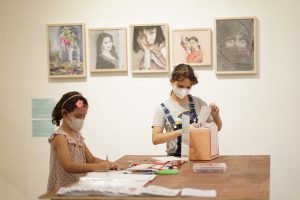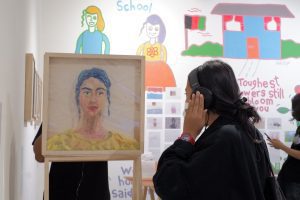Ali wanted to be free.1Kisah Ali Joya, pengungsi Afghanistan yang bunuh diri setelah delapan tahun urung dapat kepastian soal statusnya. Lengkapnya di https://megapolitan.kompas.com/read/2021/08/25/13170661/kisah-pilu-pengungsi-afghanistan-di-indonesia-lama-terkatung-katung?page=all#page3 To get out of Afghanistan, run away from the Taliban. He entered Indonesia with eight years long of waiting. “He wants to prosper, (to) support his family,” said Mujtaba, his friend.
Finally, Ali is free from life. Suicide. Illness? Assuredly. However, eight years of waiting for clarity on his status as a refugee may be more painful.
So, what exactly is Ali’s status? Wait a minute, don’t be hasty. You see, Indonesia failed to ratify the United Nations Convention on the Status of Refugees 1951 (1951 Refugee Convention) and the 1967 Refugee Protocol (Protocol Relating to the Status of Refugee).2 Polemik regulasi pengungsi di Indonesia lebih lengkap bisa dibaca di sini https://www.hukumonline.com/berita/baca/lt597853eb3280a/ada-masalah-regulasi-penanganan-pengungsi-di-indonesia/ As a result, refugees only have two choices: to hold their breath waiting for the call from the Destination Country from The UN Refugee Agency (UNHCR) or to stay in Indonesia without a clear status and proper guarantee of basic rights.
However, A Pond is the Reverse of an Island didn’t want to choose. They present their own options: solidarity and resistance. They are a collective that collaborates with the refugee community in Kalideres, West Jakarta. The formation is mixed, ranging from artists to activists and lawyers. Their goal is to formulate artistic strategies for the day-to-day life of the refugees. This includes responding to the invitation for the Biennale Jogja XVI Equator #6 2021 and participating in the main exhibition space at the Jogja National Museum (JNM) Yogyakarta.
 Contrast hits the eyes. After the darkness of Udeido Collective showroom, our eyes were greeted by the white space of A Pond is the Reverse of an Island at Jogja National Museum on the first floor. Instead of presenting a contemplative silent space, they tried other possibilities. In the northern and eastern panels, a series of infographics and clippings about the plight of refugees are laid out, focusing on Kalideres and the majority of refugee from Afghanistan.
Contrast hits the eyes. After the darkness of Udeido Collective showroom, our eyes were greeted by the white space of A Pond is the Reverse of an Island at Jogja National Museum on the first floor. Instead of presenting a contemplative silent space, they tried other possibilities. In the northern and eastern panels, a series of infographics and clippings about the plight of refugees are laid out, focusing on Kalideres and the majority of refugee from Afghanistan.
The showroom is “boisterous” with voices of information. Even in front of the showroom, pieces of information related to the refugee camp in Kalideres were plastered. This matter begins from the desire of A Pond is the Reverse of an Island to stay away from the impression of “representing”. In the Studio Visit agenda, the collective members intend to use the room as a form of sharing power and privileges with refugees.
“They deserve to have a voice,” said Sanne Orthuizen, which was then followed by a nod by his two colleagues.
So, all the installations are the voices of the refugees. Starting from the table holding the results of Publishing Solidarity, an effort to publish a coloring book that tells the story of the life of refugees in Kalideres, the money was then used to fund the refugees during the Covid-19 pandemic. Then there is the installation of a naan-making machine and a chest containing a pomegranate tree in the middle of the room. Both are typical to Afghanistan.
The story conveyed is not merely the romance of refugees. Admiration for mediocrity, the human vulnerability that then miraculously survives. However, just as the options created by the collective that reflection is a must, and challenging fate is the estuary.
What is being sued? Like the ones that killed Ali time after time, status clarity is what they strive for.
 The issue of refugees, including in Kalideres, is an ideological matter rather than a purely technical one. It’s not just a matter of ambiguous regulation, but also about ideological alignments that deserve to be questioned. Like it or not, the question of refugees needs to be brought to the basis of nationality.
The issue of refugees, including in Kalideres, is an ideological matter rather than a purely technical one. It’s not just a matter of ambiguous regulation, but also about ideological alignments that deserve to be questioned. Like it or not, the question of refugees needs to be brought to the basis of nationality.
We need to take a look at the ideas of Paduka Jang Moelia (His Majesty) Ir. Soekarno about the Indonesian Nation. For him, Indonesia’s nationalistic unity was rooted in a sense of colonization. Historically-materially, it fits. We were colonized by the Dutch, then took up arms and went to negotiations. Independence!
The problem is, is Indonesian nationalism so narrow as “those who were colonized by the Dutch”? Referring to the preamble to the Preamble to the 1945 Constitution, the problem is clear. “Colonialism over the world must be abolished…”. It isn’t merely active in eradicating “human exploitation by humans” as Karno emphasized. More than that, this nation must be ready to accept the consequences that forming solidarity with The-Colonized is a must.
Ali and the other 13,4163Lihat https://data.tempo.co/data/1189/per-juni-2021-pengungsi-di-indonesia-mayoritas-berasal-dari-afghanistan refugees in Indonesia were not only colonized. More than that, they had to leave their homeland that’s wrought with imperialistic wars. It would be nonsense if every 17 August we jog happily while waving the Red and White while thousands of Outcasts here consider mattresses to be a luxury instead of a basic right.
Thus, A Pond is a Reverse of the Island seeks to challenge the idea of established nationalism. They continue to work with refugees: planting pomegranate, kneading naan. They also said that refugee is merely an administrative status, which could not eliminate the status of human beings who were defeated, colonized, and expelled from their land. To them, we as a formerly colonized nation, are bound to forge solidarity.